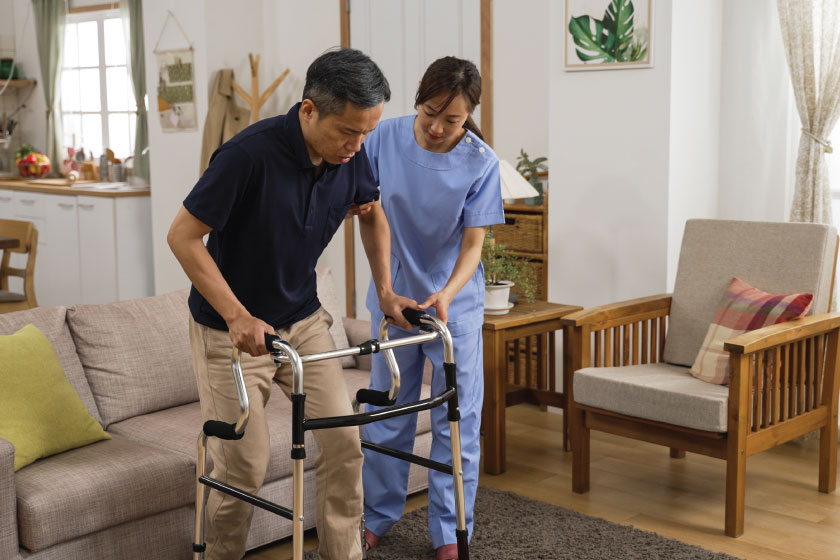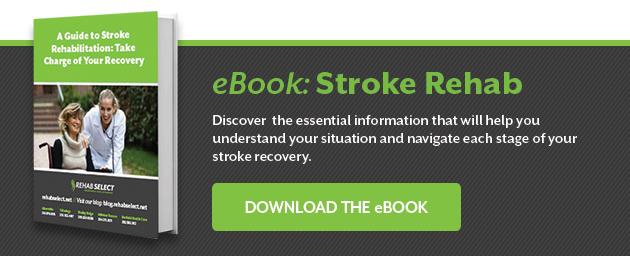
When someone has a stroke, it is common to think that the biggest ramifications will be physical and/or cognitive. And it is true that patients will have physical and cognitive long term effects of stroke to at least some degree, but one common outcome of stroke is depression. For that reason, stroke rehabilitation must include treatment for depression and treating stroke's cognitive and physical effects.
Why Depression Occurs After a Stroke
Depression can occur based on where the stroke injury occurs in the brain, and it can be exacerbated by the patient's previous history of depression (if any), as well as any family history of depression.
About 75% of all strokes occur in people who are 65 years of age and older, making it a common cause of disability in older adults. Approximately 600,000 Americans every year experience a stroke, whether it is a first stroke or a stroke recurrence. Depression occurs in 10 to 27 percent of stroke survivors and usually lasts about one year.
Additionally, incidents of depression span every different type of stroke, impacting patients’ ability to make a strong recovery.
Long Term Effects of Cerebellar Stroke
Individuals who have experienced a cerebellar stroke may face long-term challenges related to depression. The cerebellum plays a crucial role not only in motor coordination but also in emotional regulation. Damage to this area of the brain can disrupt neural pathways involved in mood regulation, leading to an increased risk of depression. Furthermore, the physical limitations resulting from cerebellar stroke, such as difficulties with balance and movement, can contribute to feelings of frustration, helplessness, and decreased quality of life, which may exacerbate depressive symptoms over time.
Long Term Effects of Ischemic Stroke
Ischemic strokes, caused by blockages in blood vessels supplying the brain, can also have long-term effects on mood and mental health. The brain areas affected by ischemic strokes may include those involved in emotional processing and regulation. Damage to these regions can disrupt the brain's ability to maintain stable mood states, potentially leading to depressive symptoms. Additionally, the challenges associated with recovery from an ischemic stroke, such as physical disability, cognitive impairment, and changes in lifestyle, can contribute to feelings of depression and anxiety.
Long Term Effects of TIA Stroke (Transient Ischemic Attack)
While transient ischemic attacks (TIAs) are often considered warning signs of impending stroke, they can also have lasting effects on mental health. Even though TIAs typically resolve within a short period, the fear and anxiety associated with experiencing a TIA can linger long after the event. Individuals who have had a TIA may live with heightened anxiety about their risk of future strokes, leading to chronic stress and depressive symptoms. Additionally, TIAs may cause subtle changes in brain function that contribute to mood disturbances, highlighting the importance of addressing mental health concerns in individuals who have experienced TIAs.
Depression and Stroke Rehabilitation Outcomes
The long term effect of stroke, such as major depression, may make patients less compliant during rehabilitation; they can experience personality changes – including becoming more irritable – because of the stroke. This can lead them to feel powerless and adopt a "what's-the-point mindset,” ultimately hindering their own recovery efforts.
Treating Depression with Stroke Rehabilitation
It is not uncommon for patients to need psychiatric help after a stroke for depression. Although depression can come from a stroke and life changes, it is also not uncommon. Strokes cause brain changes that can cause depression, depending on where the stroke injury occurs.
How Counseling Can Help
Counseling and psychotherapy ("talk therapy") can help relieve patients' depression after a stroke and improve recovery. Psychotherapy is also beneficial to family members who are dealing with the ramifications of the stroke. Psychotherapy can help relieve the stresses that come about naturally after a loved one has had a stroke. Further, when patients are responding favorably to their treatment for depression, they are also much more likely to be compliant with rehabilitative therapies that will help them restore physical and cognitive abilities.
Antidepressants for Those Undergoing Stroke Rehab
Most antidepressants are extremely safe for those who are recovering from the long-term effects of stroke. But make sure to note any medications patients may be taking since there may be unwanted interactions with other medications. Additionally, some supplements may be contraindicated with these medications or because of the stroke itself. Unwanted interactions and side effects from the medications will need to be monitored. Anyone prescribing medication for post-stroke patients should be fully aware of all the medications patients are taking to avoid unwanted interactions or side effects.
It is common for patients to experience depression from a stroke. In addition to struggles with the effects of stroke itself, they can also undergo personality and emotional changes, including depression, because of the stroke's injury to the brain. Whether depression occurs as a result of stroke damage or because patients must struggle with the effects of the stroke, psychiatric therapy is an important part of rehabilitation after stroke. Psychiatric treatments like medications and talk therapy can improve stroke outcomes, not least because treating depression makes patients more likely to comply with and, therefore, succeed in rehabilitation.
Find Stroke Rehabilitation in Alabama
Rehab Select is a renowned provider of stroke rehabilitation services across Alabama, boasting five conveniently located facilities and a specialized, physician-led program. At Rehab Select, you can expect to receive tailored and personalized therapy for the long term effects of stroke. Our team of dedicated rehabilitation specialists, comprising physicians, nurses, physical therapists, occupational therapists, dietitians, and mental health professionals, will thoroughly assess your individual situation to create a personalized treatment plan.
Our stroke rehabilitation programs are designed to address physical challenges and the cognitive and emotional effects of strokes. Contact us today to schedule a meeting or tour and learn more about how we can assist you in your post-stroke recovery journey.





